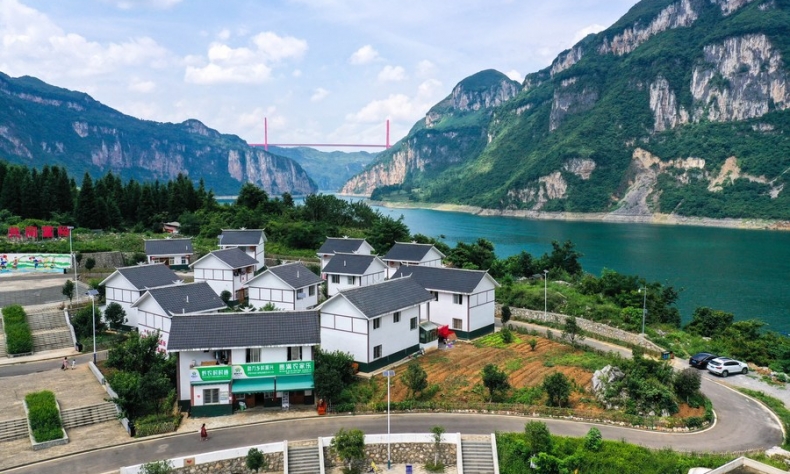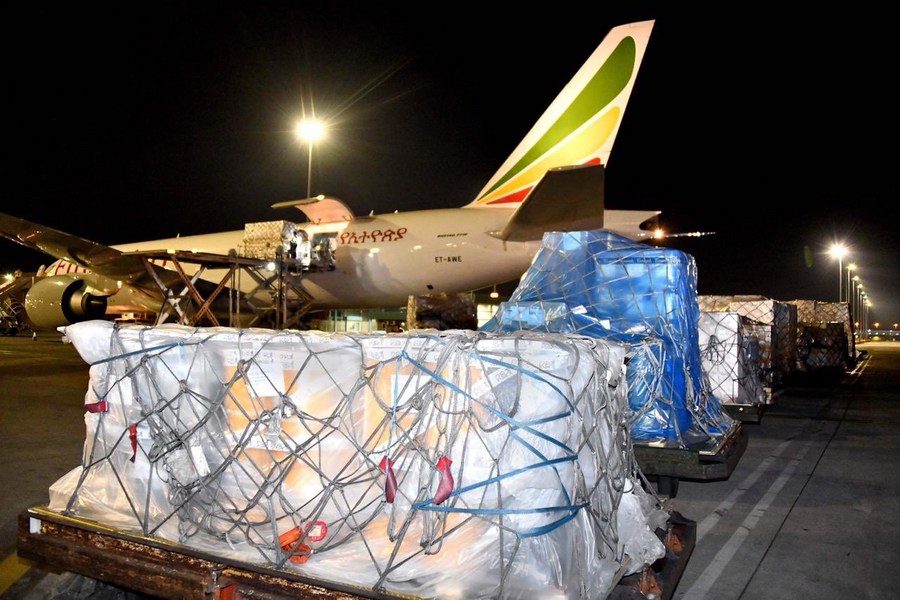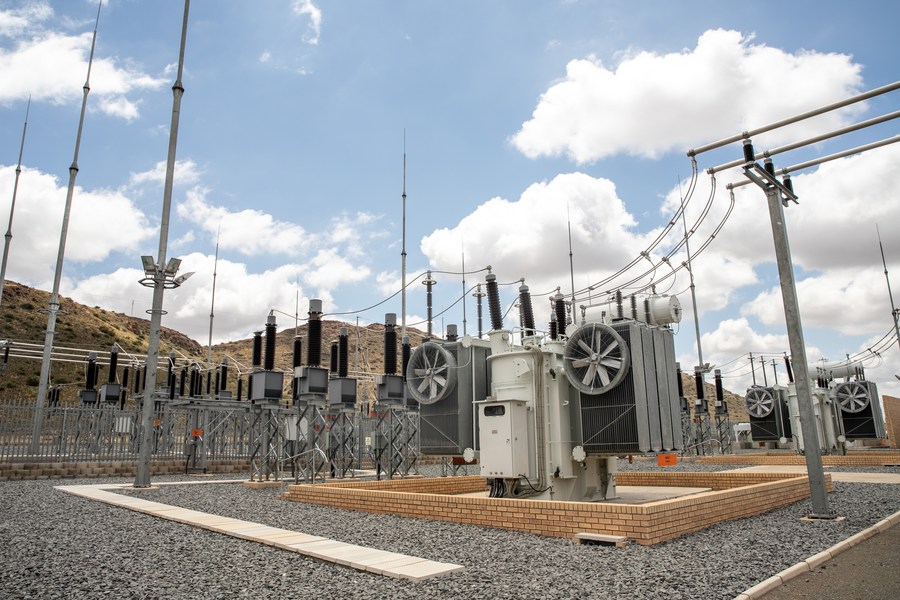South Africa and China: Pioneers of “Leaving No One Behind” towards a Community with Shared Future for Mankind

They oppose hegemony and aggression and are proponents of world peace believing in diplomatic solutions and non-interference.
South Africa and China enjoy mutual friendship founded on shared history, values and a desire for shared prosperity for mankind. The shared history is a history of the fight against colonialism, hegemony and dispossession. The shared future is the quest for a world-based social justice, freedom, equality, peaceful co-existence and shared prosperity for mankind, not a select few.
This solid friendship dates back to the days of the struggle against colonialism and apartheid; and continues today from strength to strength under cordial diplomatic relations, the BRICS cooperation and FOCAC to promote South-South cooperation to ensure that no one is left behind in the enjoyment of sustainable development.
In September 2000, world leaders adopted the Millennium Development Goals (MDGs) heralding optimism for global development and ending of poverty which mostly afflict Africa and the global South. At the centre of the MDGs, it was a declaration to end world poverty, promote universal access to education, combat diseases and promote global partnerships for development. I choose these few goals because they should have been achieved.
Fast-forward to 2015, little progress had been registered. Poverty and inequality still prevail hence they are still dominant features on the AU Agenda 2063 and the UN 2030 Agenda for Sustainable Development. At the adoption of the UN 2030 Agenda for Sustainable Development, world leaders committed to “Leaving No One Behind” and called for “partnerships for the goals”, Goal 17 of the Sustainable Development Goals (SDGs).
The Agenda comprises several ambitions, such as ending hunger and poverty, access to clean water and sanitation, health and wellbeing in developing countries, and also comprises several green agenda goals that of course cut development disparities in global development. Can no one be left behind amidst these development disparities and priorities between the South and North?
According to the United Nations, ‘Leaving No One Behind’ “represents the unequivocal commitment of all UN Member States to eradicate poverty in all its forms, end discrimination and exclusion, and reduce the inequalities and vulnerabilities that leave people behind and undermine the potential of individuals and of humanity as a whole”.

The emergence of Covid-19 at a time when the world thought the era of widespread diseases has passed, took everyone by surprise and left countries engaging in different scientific and non-scientific measures to manage and curb the spread of the pandemic which, like climate change, quickly transcended borders and threatened humanity and all that it has achieved. No country, poor or rich, could avoid the devastating impacts of the pandemic. In a world where world leaders committed to “Leave No One Behind” in 2015, five years later this commitment was put to the test and nearly was rendered just another slogan as inward-looking, narrow-minded nationalism and signs of vaccine nationalism emerged from certain quarters of the world despite Covid-19 being a global health threat permeating through all sorts of walls. Some resisted to make the vaccine a public good and saw an opportunity to profit.
During this time, South Africa and China became more outward-looking despite their own domestic brunt of the disease. They became more increasingly outward-looking because they understood that the future of humanity is intertwined and no country can exist and prosper in isolation. If any, such prosperity would be short-lived.
President Ramaphosa, writing in his weekly newsletter, “From the Desk of the President”, called for the vaccine to be a global public good and stated that “it is about affirming our commitment to the advancement of equality and human rights, not just in our own country but around the world…a situation in which populations of advanced rich countries are safely inoculated while millions in poorer countries die would be tantamount to vaccine apartheid”. His counter-part, President Xi Jinping, addressing the Davos Virtual Agenda said China will make the Covid vaccine a public good that is truly accessible and affordable to people in all countries. And indeed, China made its Covid vaccine a public good, a commitment to Leaving No One Behind.
South Africa and China are pioneers of “leaving no one behind”. South Africa, from the days of apartheid always maintained that the struggle of South Africa is the struggle of the African people. China, through President Xi Jinping, introduced the concept of building “a Community with a Shared Future for Mankind” in 2012. This concept predates the SDGs and has been accepted in the lexicon of the United Nations. South Africa’s spirit of leaving no one behind is drawn from the Spirit of Ubuntu which is like the Chinese spirit of Confucianism both emphasising peace, co-existence, kind heartedness, diversity and non-offense.
The two countries are peace-loving countries and “leaving no one behind” is embedded in the DNA of the two countries as seen by the principles of Ubuntu and Confucianism. They oppose hegemony and aggression and are proponents of world peace believing in diplomatic solutions and non-interference. They both engage in peace-keeping missions in Africa, they share in innovation and scientific advancement with partners in the global South. They do this with the spirit of leaving no one behind.

For South Africa, this is a commitment we carried from our days of the fight against apartheid to the present moment of the democratic South Africa. This is a commitment of South Africa’s foreign policy that emphasises that states are interdependent, calls for cooperation over competition, and collaboration over confrontation. The policy is based on the primacy of the African continent, commitment to South-South cooperation while consolidating relations with the North; and the pursuit and respect for multilateralism. This is a commitment we carry onward from the days of the fight against apartheid and is included in the priorities of South Africa’s 6th Administration where the Government commits to building a better Africa and a better world! This priority is translated into the five-year Strategic Plan (2019-2024) of South Africa’s Department of International Relations and Cooperation which commits to strives towards:
- A united and politically cohesive continent that works towards shared prosperity and sustainable development;
- Enhanced regional integration with increased and balanced trade within Southern African Development Community (SADC) and on the continent by supporting the creation of the African Continental Free Trade Area;
- Promotion of peace, security and stability on the continent; and
- Using South Africa’s membership and engagements in various international forums to advance the African Agenda.
For China’s part, the spirit of leaving no one behind is found in China’s Five principles of Co-existence underpinning China’s foreign policy namely mutual respect for sovereignty and territorial integrity, mutual non-aggression, non-interference in each other’s internal affairs and peaceful co-existence.
These are the DNA that from earlier times have always guided South Africa’s and China’s engagement with the world, individually and collectively through the BRICS, FOCAC, G20 and the United Nations.
Beyond being embedded in the DNA of both countries, China and South Africa truly espouse in deed the concept of “Leaving No One Behind”. It is not a rhetoric. Through FOCAC, China provides cooperation in many areas including through the much-appreciated financing for infrastructure development under the Belt and Road Initiative (BRI) among others. Infrastructure is a catalyst for growth, development and integration. For this, Ndzendze and Monyae in their article “China’s Belt and Road Initiative: Linkages with the African Union’s Agenda 2063 in a Historical Perspective” put forward that the cooperation under the Belt and Road Initiative contributes directly to the achievement of the African Union Aspirations, particularly aspirations one and two.

Therefore, FOCAC is a pragmatic tool for ensuring that no one is left behind and we truly achieve the “Africa we want” and a Community of Shared Future for Mankind. When the world was facing uncertainty and there was a growing rise of vaccine nationalism, China provided 189 million doses of vaccine for 27 countries and also embarked on joint production of vaccines in Africa with annual capacity of 400 million doses. South Africa also did its part and stood in solidarity with other African countries and donated vaccines to the African Union. This has saved our shared future and put us on a path to shared prosperity and peaceful coexistence for prosperity.
While China-Africa cooperation focuses mostly on infrastructure, agriculture, manufacturing and people-to-people exchanges, China committed to deepening cooperation in new fields such as energy, digital economy and innovation among others. This will go a long way in ensuring that Africa is not left behind in the green goals of the SDGs especially in an era where there is competition for resources to finance anti-poverty efforts and the green goals.
The two countries are pioneers of “Leaving No One Behind”, not in rhetoric but in deed since the days of the struggle against colonial rule and other forms of global injustice that threaten peaceful co-existence and shared prosperity. “Leaving No One Behind” is indeed brought to life by the pursuit of “Building a Community with Shared Future for Mankind” as it finds concrete expression in the BRICS, FOCAC and increasingly in the United Nations.
Mr. Bongani Mayimele is a Director for International Relations and Partnerships at the National School of Government, Republic of South Africa. He has extensive experience in the development and governance sectors having worked at national, local government as well as international development cooperation.
The article reflects the author’s opinions, and not necessarily the views of China Focus.
 Facebook
Facebook
 Twitter
Twitter
 Linkedin
Linkedin
 Google +
Google +










